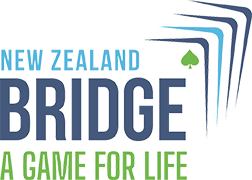
Bid out of Rotation Law 31
The offender bids at LHO turn which is not accepeted. It states that Law 25 applies when offender has previously called. How is this law applied in this situation.
Any feedback welcomed,
Thanks,
Marion
Latest Posts on this Thread
- Brad Johnston29 Oct 2020 at 01:53PM
Hey Marion,
That part of Law 31 applies in the specific case that offender has previously called and it's currently left hand opponents turn to bid.
Because it's left hand opponents turn to bid; it means that no-one has been between the offender's first bid; and their second bid out of rotation.
The auction would look something like this:North East South West Pass 1NT 2C 2H
There are only 4 bids here, and South has taken two of them sequentially. This is a call out of rotation at LHO's turn to call, and Law 31 decrees we treat this as a change of call instead of a call out of rotation.
Therefore we look at Law 25, and see what it says. The law is in plain text, my comments / applications are in-line in bold:LAW 25 - LEGAL AND ILLEGAL CHANGES OF CALL
A. Unintended Call
1.
If a player discovers that he has not made the call he intended to make, he may, until his partner makes a call, substitute the call he intended for the unintended call. The second (intended) call stands and is subject to the appropriate Law, but the lead restrictions in Law 26 do not apply.
If we find out that South had a 2H overcall, and pulled the wrong bidding card / had a slip of the finger -> they'd be able to change their bid.
2.
If the player’s original intent was to make the call selected or voiced, that call stands. A change of call may be allowed because of a mechanical error or a slip of the tongue, but not because of a loss of concentration regarding the intent of the action.
If South originally thought that they were playing a system where a '2H overcall' went through an artificial 2C overcall (e.g. 2C single-suiter); then they remembered afterwards that they were not; they are not able to change their call.
3.
A player is allowed to replace an unintended call if the conditions described in A1 above are met, no matter how he may have become aware of his error.
So if West asks North "What's 2C?", South can say "I didn't bid 2C, did I?!" and get their call changed. If North alerts 2C South can change their bid still but ONLY if it's a mechanical error (not a system forget!).
4.
No substitution of call may be made when his partner has made a subsequent call.
This will never apply, as we're dealing only when it's LHO's turn to call.
5.
If the auction ends before it reaches the player’s partner no substitution may occur after the end of the auction period (see Law 17D).
As above, this is irrelevant.
6.
If a substitution is allowed the LHO may withdraw any call he made over the first call. Information from the withdrawn call is authorized to his side and unauthorized to the opponents.
This is irrelevant, at LHO's turn to call they haven't made any call yet to cancel.
B. Call Intended
1.
A substituted call not permitted by A may be accepted by the offender’s LHO. (It is accepted if LHO calls intentionally over it.) The first call is then withdrawn, the second call stands and the auction continues (Law 26 may apply).
Just like how you can accept an insufficient bid; someone might realise they bid the wrong thing, then scribble it out and bid the right thing without calling the director. Even if this isn't a legal change of call as per A above (maybe they forgot system, but had originally intended their call); LHO would be deemed to accept the new call if they bid over it.
2.
Except as in B1, a substitution not permitted by A is cancelled. The original call stands and the auction continues (Law 26 may apply).
If they scribble out their bid; write something new, then the directors get called and LHO doesn't accept it, it goes back to the bid that they scribbled out being the 'valid' bid of the auction.
3.
Law 16C applies to any call withdrawn or cancelled.
Offender's partner isn't allowed to know that their partner is displeased with their bid / wanted to scribble it out and try again. If Offender wrote 2C, replaced it with 2H and was told that it wasn't allowed (for whatever reason); when it get wound back to 2C, offender's partner isn't allowed to know that their partner had a 2H bid (whatever that means in their system).So to apply this law correctly, the director should take the offender, their system card, their hand, and the bidding slip away from the table / out of earshot of the rest of the players. They should ascertain if it was an intended call or an unintended call (asking questions like "why did you bid 2C", and "why do you want to change it to 2H?"), then they should follow through the appropriate bolded comments above.
- MARION ARLIDGE29 Oct 2020 at 10:38PM
Hi Brad,
This is amazing, thanks so much. I am learning for the Exam and was not able to get an answer to my question from anyone at our club and their is suprisingly little information to be found on the internet.
I stumbled over the forum by accident when I was surching the net jet again.
I have other question, I will post them on the forum and will be delighted if you could answer them.
Thanks,
Marion
Click here to log in.
